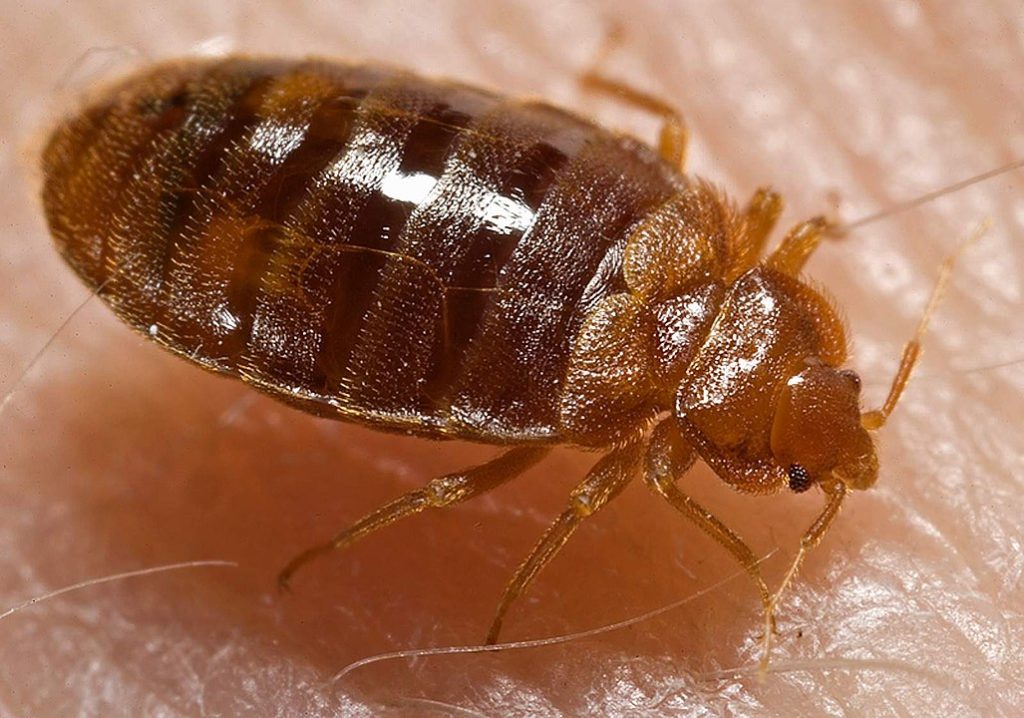Bedbugs are stealthily infiltrating Belgium via the international Thalys rail network;
✔ The pervasive pests infiltrate a wide range of public spaces
✔ Belgian public transport and pest control companies heighten their countermeasures
✔ The infestation has substantial negative implications for the economy and public health
'Growing problem': French bedbug infestation spreads to Belgium

After rapidly infesting much of France and becoming increasingly present on the French transport system, bedbugs are beginning to arrive in Belgium, with pest control companies receiving a surge in calls for suspected infestations.
The tiny parasitic insects are increasingly infesting public spaces and are a growing cause for concern in Europe. In France, but also in neighbouring countries, there are reports that their presence in cinemas, hotels and trains is on the rise.
These parasites, although no more than 8 mm long, can infiltrate bedding, fabrics, and even seats on public transport, where they bite humans and spread the infestation to European homes.
There are fears that the French public transport system is enabling the bugs to spread across Europe. Some experts have questioned whether bedbugs may be travelling to Belgium on the Eurostar (Thalys) connections between the two countries, or even on SCNF trains. While Eurostar assures that cases of bedbugs are very rare on its trains, it still carries out regular and thorough cleaning of textile surfaces.
"Reports are taken very seriously by our cleaning teams, who will disinfect a train as soon as there is the slightest suspicion," Eurostar spokesperson, Céline Ronquetti, told La Dernière Heure (DH). Despite these measures, Eurostar has recorded isolated cases of bedbug outbreaks this year and plans to introduce a "preventive treatment" across its entire network in the coming weeks.
In a comment to Bruzz, Belgian rail company SNCB said that it was strengthening its cleaning policy in response to the French infestation, especially on its fabric seats. In Brussels, STIB says that it is less concerned by the bed bug crisis as it primarily uses plastic seats, but will increase steam cleaning of fabric seats on its older trams.
International infestation
It is not exactly clear how bedbugs are brought to the country, but Brussels pest control company Belbugs claims that in around 40% of cases, they enter Belgium with the help of international travellers. Hotel beds, it says, are a common source of infestation.
"Sometimes, bedbugs hide in the cracks of furniture or in seats in offices or vehicles. If you buy items from a car boot sale, you can also put yourself at risk of infestations as the insects can enter your home," the company warns.
Abdel, manager of the pest control company SOS-Ratting, told DH that they were beginning to receive a spike in calls, which coincides with the particularly severe infestation across the border in France.
"We are receiving more and more calls about this problem. The peak started in July and it hasn't stopped since," he noted. The pest control specialist says that he receives numerous calls about bedbug infestations in Brussels, Charleroi and Liège.
Abdel believes that the summer holidays may have also played a role in this latest infestation: "They've gone to France or Spain, stayed in hotels, taken transport and brought back bedbugs without noticing." The popularity of buying second-hand products, furniture and clothing has also encouraged the bugs to spread.
Widespread and expensive
The spike in calls marks a mere uptick in what has long been a "growing problem in Brussels," with professionals warning about the parasites' presence in Brussels since 2018.
Infestations have also been known to be particularly bad in the capital's homeless shelters and social housing. In 2021, tenants in a social housing unit in Ghent were driven out by a particularly severe infestation.
Rafaël Godfrin, co-director of Antinuisible SARL, says that there has been a 300% increase in bedbug infestations over the past two years, noting that no major city had been spared and that infections were even reported in high-end hotels.
Related News
- 'Haren is a disaster': Belgian prisons go on 48-hour strike to protest inhumane conditions
- Bedbugs ‘a growing problem’ in Brussels
The financial burden of dealing with infestations is significant, with some companies charging customers several hundred euros for extermination services. With the surge in demand, this infestation is big business for pest control companies, but a potential nightmare for tenants.
"Some companies don't hesitate to charge their customers huge sums. Some charge €500 or €600 for a job in a flat. Sometimes they charge as much as €1,000," Abdel said, noting that some had sought to exploit the health crisis for personal gain.
